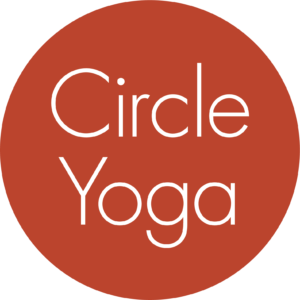August 2012
Dear Friends,
I wrote last month about the loss of my dog Gus, after 12 1/2 years of shared life and home. The weekend after Gus died we spent in the mountains with my extended family. This included all four of us siblings, our dad, and an assortment of our children.
When we arrived back at home on Sunday night, our house was eerily empty. Our four kids were back in their respective cities, my family had gone home, and our two cats had gone out for the night. Even with my husband Paul there, it felt lonely.
The loneliness increased the next day when Paul left for a two-day work trip. When I climbed the stairs to bed that night, I realized that there were no other living beings in the house. (Not entirely true, of course, given all of the insects and spiders living in nooks and crannies.) After 25 years of family living, and another 25 before that living either with humans or pets, I felt awkward and alone.
Even though I consider myself quite an introvert, there is something about living alone that feels strange to me. The weekend that we spent with my extended family had been surprisingly easy and relaxed. We siblings haven’t always had the easiest relationships, but with the large contingent of three generations, from 3 to 82 years old, there was very little room for bickering and grudges, and plenty of time for cooking and hiking together, and we even managed to play a game with all fourteen of us.
We humans evolved to live together because it makes life easier and more fun. Until World War II, US families more often than not lived in extended groups, and even now, in most countries of the world, and even in many communities in this country, the “nuclear” family is the exception. People are born, raised, partnered, and grow old in extended families. And yes, they probably have problems living in community that we don’t have to deal with living more separately. But perhaps they don’t have the same sense of loneliness. They certainly don’t seem to have the same levels of anxiety and depression that we are experiencing in Western societies.
In Buddhism, there is an emphasis on sangha, or community of practitioners. Living in community allows us to share responsibilities and share commodities, which reduces our need to consume. Raising children in extended families offers parents opportunities to get support for needed time away from the kids, and also provides children with additional role models and adult connections. Shopping in bulk makes more sense when we live in community.
Living in community is where we learn to expand our compassion for others, and to let go of clinging to our imagined separate self. These are important parts of attaining freedom from our self-created suffering. But, how do we shift back toward more community after decades of individualized living?
For someone like myself, and maybe many of you, I moved hundreds of miles away from my family of origin, and my children consider our new city to be their home. We uprooted ourselves decades ago, and it would be challenging to try to transplant our new family back in the old soil.
In Tolstoy’s The Three Questions, the king asks, What is the most right time to begin anything? Who are the most important people to listen to? And What is the most important thing to do? Through this parable, he discovers that now is the right time to begin, the people we are with are the most important people to listen to, and the most important work is to do good for the people we are with.
Thich Nhat Hanh says something similar in The Miracle of Mindfulness:
We talk about social service, service to the people, service to humanity, service for others who are far away, helping to bring peace to the world– but often we forget that it is the very people around us that we must live for first of all. If you cannot serve your wife or husband or child or parent– how are you going to serve society? If you cannot make your own child happy, how do you expect to be able to make anyone else happy?
So I am asking myself, if we don’t have extended family nearby, how do we create it with the people right here in our lives– with our adoptive communities: the yoga and mindfulness community, the neighborhood community, and local friends? Could we fill our empty rooms with people who could become our non-family family? Should we consider moving into an intentional community? There are many different options for creating the extended family that we all need to survive and thrive. Like the Stephen Stills song says, we should “Love the one you’re with.”
I had this conversation with my oldest daughter, who just graduated from college, and she pointed out that there is a trend, given the low employment rate, for young adult children to move back in with their families after college. And I know several people retiring to intentional communities around the country. So perhaps the tide is turning and we are beginning to recognize and respect the need we have as human beings to live in extended families and communities. I know that I feel the strong pull for living in community to support me as I move into a new phase of my life.
I welcome your thoughts on living in community and extended family.
with love,
annie.
